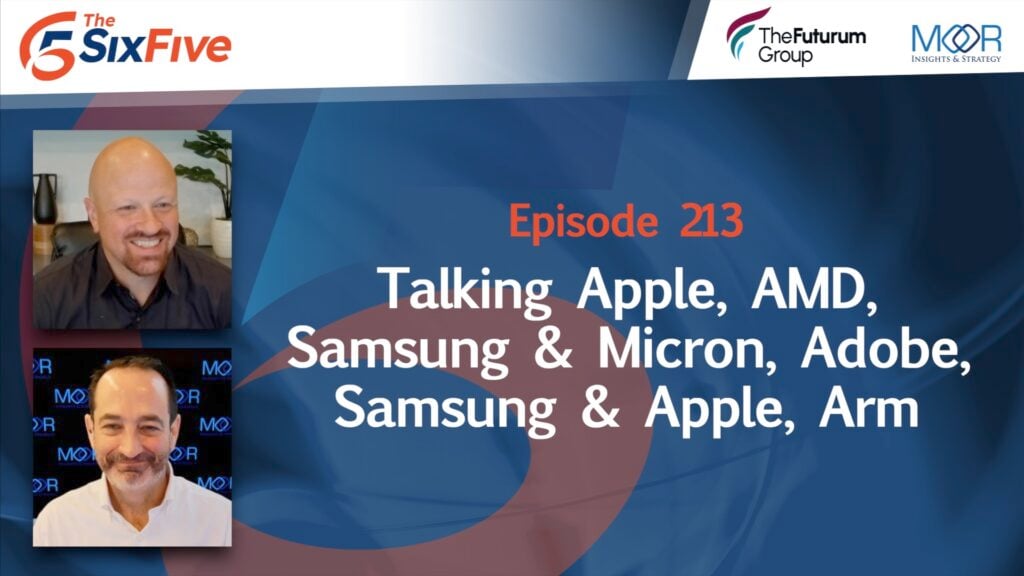The News: Intel unveiled the latest advancements to its Intel Arc A750 and A770 desktop GPUs. Read the Intel blog here.
Intel Arc: Reinvigorates GPU Prop with Performance, Bundling, and Pricing Enhancements
Analyst Take: Intel’s Graphics team launched its high-end Arc A770 and A750 graphics cards in October 2022. The Intel Arc Alchemist launch generated ecosystem-wide marketing sizzle as gamers are keen to welcome a compelling third alternative to the gaming GPU market duopoly currently dominated by NVIDIA and AMD. This can be a refreshing sales and marketing shift for Intel, as it now gets to play offense against NVIDIA and AMD’s defense in the same manner Intel must defend its dominant market position in market segments such as data center CPU and PC CPU.
Since their release, the cards have grappled with intense GPU competition, further incentivizing Intel to follow up with an array of major new driver and software updates. At the high-buzz October launch, Intel did indicate that it already planned to improve DirectX 9 (DX9) performance, assuaging the PC gamer community with huge legacy game collections.

Now Intel has addressed the driver bugs and software glitches that hindered DX9 performance by delivering the software optimization and price reduction to meet a huge swath of PC gamer expectations. From my view, Intel’s timely execution of its commitment to improve its graphics card proposition as swiftly energizing competition in the gaming GPU market segment, compelling both NVIDIA and AMD to devote portfolio development and marketing resources to counter the looming Intel threat.

From my view, Intel’s ability to demonstrate a 43% overall improvement for DX9 games can improve its overall sales prospects. In fact, Intel is showing that four game titles can attain performance gains that surpass 70%, further strengthening the Intel Graphics team marketing momentum.
For price, Intel is promoting the Intel Arc A750 at a freshly discounted $249, a sharp advantage over the NVIDIA RTX 3060 12GB price point of $391 (based on January 26, 2023 price average). Moreover, Intel is claiming 52% better performance over the same NVIDIA product. I see these price performance factors stimulating Intel’s sales and marketing momentum and giving NVIDIA a real run for its money. Of note, from my view Intel also needs to improve the Arc control panel overlay user experience with additional software enhancement to further augment the Intel Arc A750 value proposition.
Key Takeaways: Intel Updates Intel Arc A750 and A770 Desktop GPUs
I believe Intel is making the right moves to stir up competition in the gaming GPU market segment by following through on its commitment to deliver price performance advances in Q1 2023. Now Intel needs to show it can continually use its vast portfolio development and software assets to improve the Arc Control experience and move the needle in the GPU space.
Disclosure: Futurum Research is a research and advisory firm that engages or has engaged in research, analysis, and advisory services with many technology companies, including those mentioned in this article. The author does not hold any equity positions with any company mentioned in this article.
Analysis and opinions expressed herein are specific to the analyst individually and data and other information that might have been provided for validation, not those of Futurum Research as a whole.
Other insights from Futurum Research:
Intel Q4 2022 and FY 2022 Results: Patience is a Virtue
Image Credit: The Verge
Author Information
Ron is an experienced, customer-focused research expert and analyst, with over 20 years of experience in the digital and IT transformation markets, working with businesses to drive consistent revenue and sales growth.
He is a recognized authority at tracking the evolution of and identifying the key disruptive trends within the service enablement ecosystem, including a wide range of topics across software and services, infrastructure, 5G communications, Internet of Things (IoT), Artificial Intelligence (AI), analytics, security, cloud computing, revenue management, and regulatory issues.
Prior to his work with The Futurum Group, Ron worked with GlobalData Technology creating syndicated and custom research across a wide variety of technical fields. His work with Current Analysis focused on the broadband and service provider infrastructure markets.
Ron holds a Master of Arts in Public Policy from University of Nevada — Las Vegas and a Bachelor of Arts in political science/government from William and Mary.







